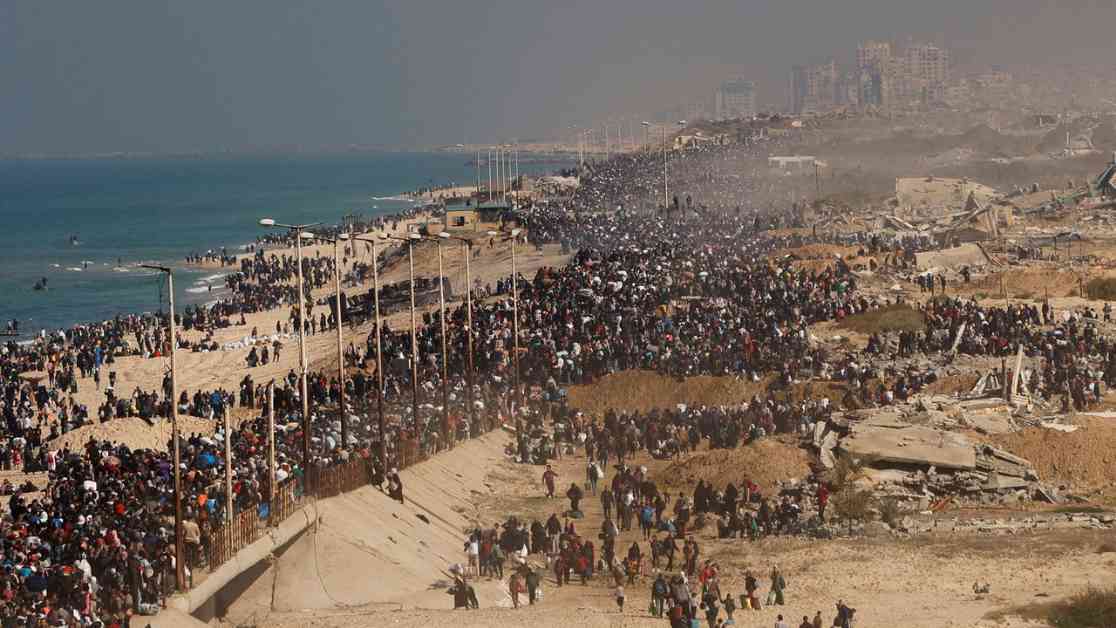President Trump’s controversial decision to advocate for the forced displacement of Palestinians from Gaza and the subsequent real estate development of the area alongside Israeli Prime Minister Benjamin Netanyahu has sparked global outrage and concern. In a recent press conference, Trump boldly asserted that the United States should “take over” Gaza and “own” it, disregarding the ethical implications of such an action. Despite the widespread devastation and loss of life experienced by the Palestinian population, Trump seemed focused on the potential economic benefits of transforming Gaza into a luxury destination akin to the Riviera.
International Backlash and Political Maneuvering
Netanyahu’s enthusiastic reception of Trump’s proposal and his effusive praise for the American President raised eyebrows among political analysts and journalists alike. The Israeli leader’s eagerness to leverage Trump’s support for his domestic political gains did not go unnoticed, with many questioning the implications of such a cozy relationship on regional stability. The international community, including countries like Saudi Arabia, has expressed skepticism and outright rejection of Trump’s plan, highlighting the complex web of alliances and interests at play in the Middle East.
Expert Insights and Historical Parallels
As seasoned diplomats and analysts weigh in on the unfolding drama between Trump, Netanyahu, and the Palestinian people, comparisons to past political strategies emerge. Drawing parallels to Richard Nixon’s infamous “Madman Theory” and other historical instances of brinkmanship, experts like Aaron David Miller caution against the long-term consequences of using such tactics in international relations. The potential fallout from Trump’s latest gambit extends beyond the Middle East, with implications for global security and stability.
In the midst of this geopolitical theater, the voices of those directly impacted by these decisions must not be forgotten. Political scientist Mkhaimar Abusada’s somber assessment of the situation in Gaza serves as a poignant reminder of the human cost of political posturing and grand strategy. As Palestinians face the prospect of further displacement and uncertainty, the need for empathy, understanding, and a genuine commitment to peace becomes more urgent than ever.
While Trump’s bold declarations and Netanyahu’s political calculations may capture headlines and fuel speculation, the real-world implications of their actions demand a closer examination. As the international community grapples with the fallout from this latest episode in the ongoing saga of the Israeli-Palestinian conflict, one thing remains clear: the need for thoughtful, principled leadership and a genuine commitment to dialogue and diplomacy has never been greater. The stakes are high, and the consequences far-reaching. As the world watches and waits, the true test of leadership lies in the ability to navigate complex geopolitical terrain with wisdom, compassion, and a steadfast dedication to peace.












